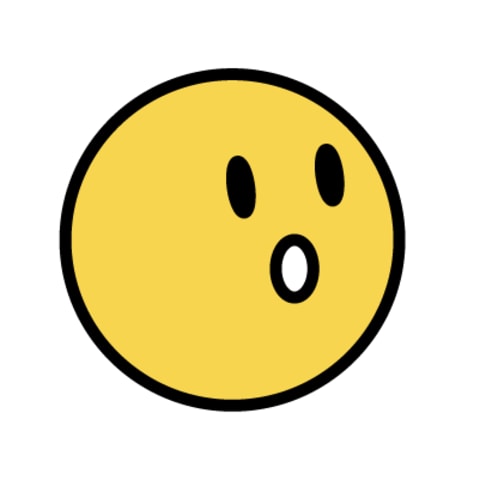Your "song of the summer" probably came from TikTok
From "A Bar Song" to "Beautiful Things," a number of current radio hits took off on the app first
Last week I braved hordes of seltzer-drunk suburbanites dressed as cowgirls to sit in a minor-league baseball stadium and sweat through my personal song of the summer.
The song’s not exactly a deep cut. It’s not exactly deep, full stop. But “A Bar Song” — Shaboozey’s twangy, chart-topping interpolation of the 2004 classic “Tipsy,” by J-Kwon — makes one heck of a warm-weather anthem. Rarely do I listen to it just one time. Nor did I last Friday, in fact! Shaboozey came on stage, played “A Bar Song” four times, and … abruptly ended his very short set.
Personally, I was baffled. Had something happened? Was this some kind of protest? Behind us, however, a trio of rowdy bros confidently propagated their own thesis. “He’s only TikTok famous,” they said, first to each other and then to anyone in the vicinity who would listen.
The implication intrigued me. There was arguably a moment, early in TikTok’s ascent, when being “famous” on the app was distinct from being “famous” in other cultural contexts. TikTok music was not pop music, per se — it was "absurd, croaked-out, bass-gurgling,” a soundtrack for adolescent dance challenges.
But internet culture is pop culture now. No one calls Lil Nas X, Olivia Rodrigo or Noah Kahan “TikTok stars” anymore. (No one ever called Kate Bush or Stevie Nicks “TikTok stars,” though their stars rose a second time through the platform.) Meanwhile, even global mega-musicians — world tour type musicians — host influencer listening parties and gin up “viral” challenges in the hopes that some of TikTok’s algorithmic magic will rub off on them. In 2024, “TikTok famous” isn’t a dig — it’s a sign that you're living in another, long-past period.
The charts themselves bear that out, to a point, if you’re willing to dig through them. Days after the Shaboozey show, and empowered by a 14-day free trial I really can’t forget to cancel, I subscribed to a wildly expensive music data service called Chartmetric, which tracks song and artist metrics across more than a dozen platforms. I was curious to what degree mainstream radio stations, like the one that brought Shaboozey to Buffalo, also play viral TikTok songs.
The answer was higher than I expected: Per Chartmetric, 94 new songs by American artists earned at least 100,000 TikTok posts in the past year. Of those, 68 also saw some radio play over the same period.
The majority of these crossover hits are by global superstars, of course — Taylor Swift could record her cat dry-heaving, and it’d probably go platinum a dozen times over. But under that, there’s also a surprisingly deep layer of lesser-known or emerging artists whose songs appear to have taken off on TikTok before they made the jump to mainstream radio.
Those include songs like “Austin,” by 24-year-old singer-songwriter Dasha, who choreographed an accompanying line dance that went viral on TikTok in March; “Someday I’ll Get It,” by Alek Olsen, whose brooding blip of a song became the favored soundtrack for reminisces about departed pets; and “Act II: Date @ 8,” by 4batz, whose sudden viral success fueled speculation he was an “industry plant.”
The second most-played song on FM radio right now, Tommy Richman’s “MILLION DOLLAR BABY,” also gained steam on TikTok in early May as the soundtrack to a teen dance challenge and a relationship meme sometimes dubbed the “Black wife effect.”
Meanwhile, “Beautiful Things” — the first single off Benson Boone’s debut album, and the seventh most-played song on U.S. radio yesterday — went viral on TikTok three months ago, when users realized its cathartic, eight-bar chorus could soundtrack just about any strong feeling.
The dynamics of online popularity are noisy and multidirectional, of course: I can’t say what’s causation or correlation here, and I can’t disentangle an artist’s TikTok success from other equally important factors. (Boone opened for the Eras Tour in London last week, for instance, and Shaboozey appeared twice on Beyoncé’s Cowboy Carter.) There’s actually a growing panic, in some corners, around how and why some musicians achieve viral fame — a reflection of just how little we understand the interplay between social media, radio and streaming.
I include myself in that “we,” for sure: I had no idea that so many songs I like actually took off on TikTok first. “A Bar Song (Tipsy)” is maybe the prime example — I encountered it through a Spotify playlist long before I realized TikTok had found infinite storytelling potential in that “oh my … Good Lord” chorus. And I realized *that* long before I knew “Bar Song” made the jump to country radio and the sorts of mass-market stadium shows like the one I saw last week in Buffalo.
Platform and provenance hardly matter anymore — we’re all just swimming in a sea of content! And if it wasn’t clear before, it should be clear now: “Internet” and “pop” culture are synonymous.
Caitlin Dewey is a reporter and essayist based in Buffalo, N.Y. She was the first digital culture critic at the Washington Post and has hired fake boyfriends, mucked out cow barns and braved online mobs in pursuit of stories for outlets including The New York Times, The Atlantic, The Guardian, The Cut, Elle, Slate and Cosmopolitan.


